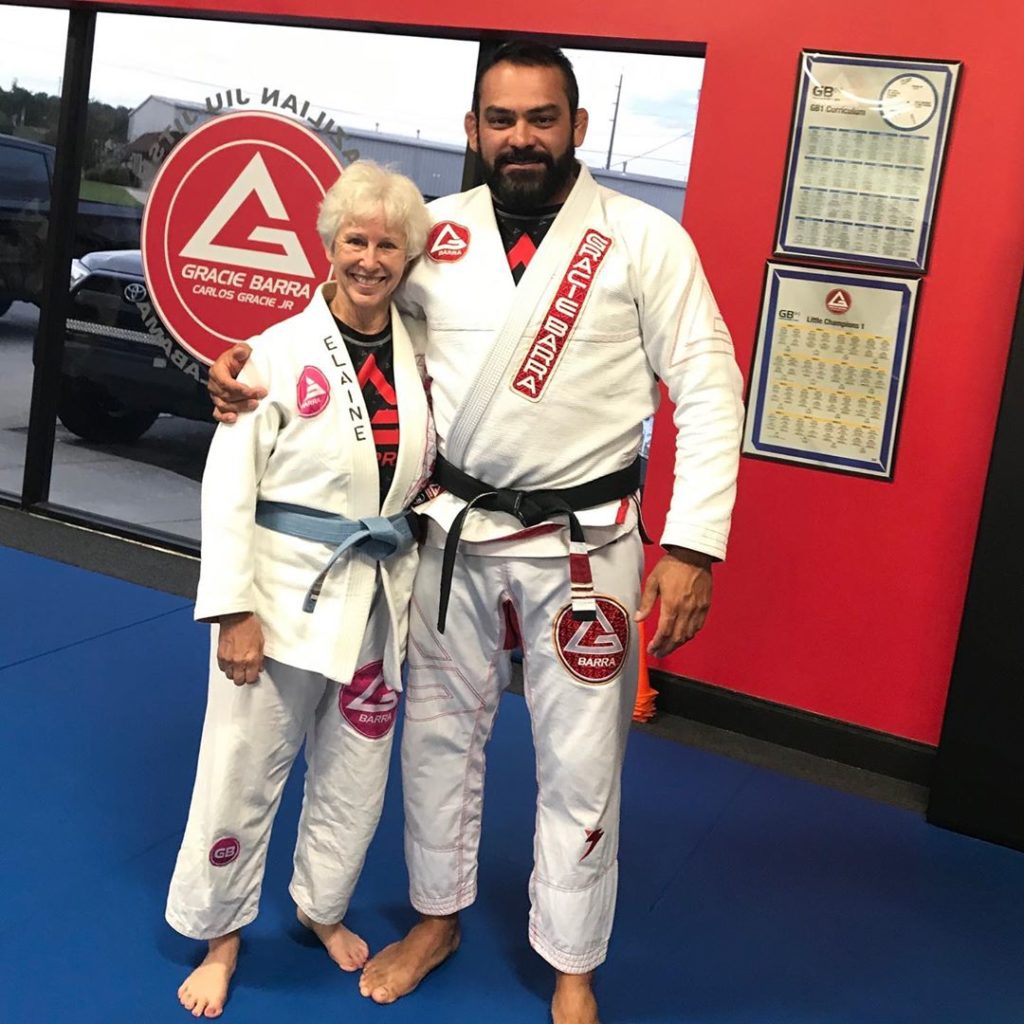GB Student Question: “Am I starting Bjj at an age too late to get to black belt?”

Elaine Wynn, at age 72 with Professor Kaliffa Oliveira
GB received a question from a new student starting Jiu-Jitsu at the age of 52 years old. The student had a background in athletics – including competitive triathlon – and was very excited after being introduced to Jiu-Jitsu.
ㅤ
They asked a few questions about more mature (over 40 years of age) beginning and staying with Jiu-Jitsu.
ㅤ
“…can I survive long enough to become a black belt by (likely age 62)? And what should my goal be to survive that long? (I didn’t think I had aged much until this past week…)”
ㅤ
Great questions and in fact, very common thoughts among our over 40 Gracie Barra students.
ㅤ
Q. “…can I survive long enough to become a black belt by (likely age 62)?”
ㅤ
GB: Earning a black belt in Jiu-Jitsu is a long process with many ups and downs. Forget the young phenoms who train full time and graduate to black belt in 3 or 4 years. The typical black belt you meet will have been training upwards of 10 years.
ㅤ
Even very fit younger guys feel overwhelmed when they start bjj. It is just a whole different world on the ground. The Gracie Barra professor who I trained to black belt under had the philosophy that any of the students can be a black belt. Jiu-Jitsu is for everyone. Becoming a black belt was not only the providence of young, talented competitors. It was more a matter of being consistent over the long haul and So, yes…the over 40 beginners can one day acquire the skills to wear the black belt.
ㅤ
Q. “…what should my goal be to survive that long?”
ㅤ
GB: As an over 50 athlete, your approach needs to be a little different than the 23-year-old competitors who have faster metabolisms as well as the ability to recover quickly from those inevitable training injuries.
ㅤ
Here are some practical tips for over 40 Gracie Barra students.
ㅤ
1 – Pick your training partners carefully. After age 40 your capacity to recover from hard training and injuries is diminished. An injury will set you back and keep you off of the mats. Roll with students who have the same goals as you do and avoid students that you find spazzy (which you probably are at the beginning). Your #1 goal is to stay healthy enough to train consistently
ㅤ
Prof. Carlos Lemos shares some great advice:
“My advice for anybody training Jiu-Jitsu is something that I always tell my students: please remember… CONSISTENCY over intensity. Intensity is going to ruin you, going to destroy you.
ㅤ
You can not squeeze too hard essentially. It’s subtle pressure. That is what chokes people out. If you squeeze too hard you will burn your grips. You burn out your hands. You can’t really win.
ㅤ
The mindset that you have when you are squeezing a choke is the same mindset that you should have with your training. Consistent. Not intense!”
ㅤ
2 – Train with the purpose to learn (not “win” the roll) and leave enough in the tank to be able to come back again next class. Leave the “go hard or go home!” to the young meatheads. A lot of students get frustrated when they think their progress “should be” faster than it is. Just show up and try to absorb something from each session.
ㅤ
3 – Find a way to have fun. Training should not be a deadly serious business with your ego at stake in every class. The only way you will stick with it is if you love the day to day process. It takes a LONG time to even get to purple belt. You need to find a way to have fun drilling and rolling without getting discouraged or burning out.
Getting a few solid, regular training partners will be invaluable and you can support each other through the inevitable ups and downs.
ㅤ
Hope this advice helps!
ㅤ
GB Values: Jiu-Jitsu Culture
ㅤ
Credits: Mark Mullen
Gracie Barra Black belt based in Asia
